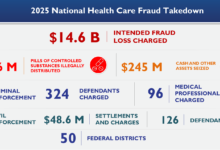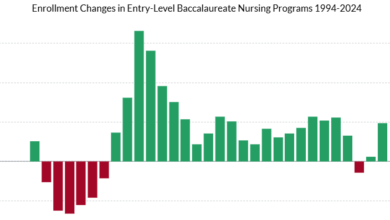Epidural ‘linked’ to fewer serious complications after childbirth

Women receiving an epidural during labour is associated with a ‘marked reduction’ in serious complications in the first few weeks after giving birth, according to UK researchers.
They highlighted that such complications could include heart attack, heart failure, sepsis, and hysterectomy, which were collated under the umbrella term severe maternal morbidity (SMM).
“Expanding access to epidural analgesia for all women during labour, and particularly for those at greatest risk, could improve maternal health”
Study authors
They also noted that epidural analgesia was recommended for women with known risk factors for SMM, such as multiple births, morbid obesity and certain underlying conditions.
Women giving birth preterm also carried a higher risk of SMM, though epidurals were seldom recommended for preterm labour alone, stated the study authors from the University of Glasgow.
However, they said they could only find two observational studies – one from the US and one from France – that had attempted to identify specific benefits from epidurals for SMM.
“Despite the assumed benefits of epidural analgesia during labour to prevent SMM, the evidence base for this is limited,” said the researchers in the British Medical Journal.
“The lack of robust evidence on whether benefits exist beyond the provision of epidural analgesia might affect the discussions clinicians have with women and their decisions,” they noted.
As a result, the Glasgow researchers in collaboration with the University of Bristol set out to determine the effect of labour epidural on SMM.
The researchers studied NHS data for 567,216 mothers in labour (average age 29 and 93% white) delivering vaginally or via unplanned caesarean section in Scotland between 2007 and 2019.
They looked for any of 21 conditions defined as SMM by the US Centers for Disease Control and Prevention or a critical care admission at any point from delivery date to 42 days after birth.
Of the 567,216 women, 125,024 (22%) had an epidural in labour and SMM occurred in 4.3 per 1000 births.
Having an epidural was associated with a 35% relative risk reduction in SMM in all women in the study, according to the researchers.
Greater reductions were seen among women with known risk factors for epidural compared to those without and in women delivering preterm compared to term or post-term.
Notably, the study authors highlighted the that, among the 77,439 women in the study who were at higher risk of severe maternal morbidity, only 19,061 (24.6%) received an epidural.
The study authors said their analysis indicated that epidural analgesia during labour was associated with a 35% risk reduction in SMM in all women.
“This effect was more pronounced in specific groups, showing a 50% risk reduction in women with predefined risk factors, and a 47% reduction in those delivering prematurely,” they said.
“These findings substantiate the current practice of recommending epidural analgesia during labour to women with known risk factors, underscores the importance of ensuring equitable access to such treatment, and highlights the importance of supporting women from diverse backgrounds to be able to make informed decisions relating to epidural analgesia during labour.”
They added: “Expanding access to epidural analgesia for all women during labour, and particularly for those at greatest risk, could improve maternal health.”
Related stories on epidurals







